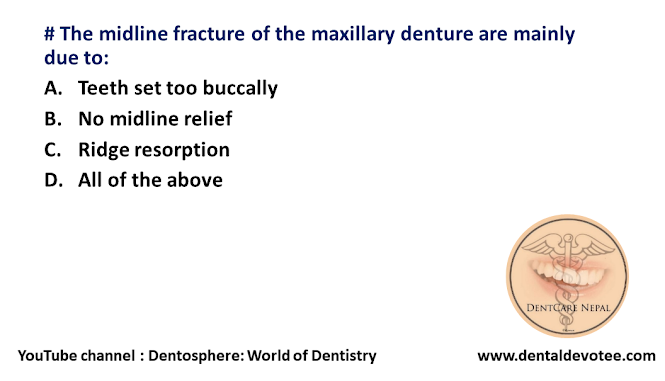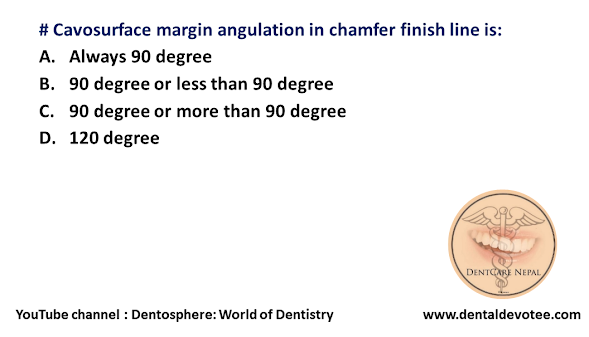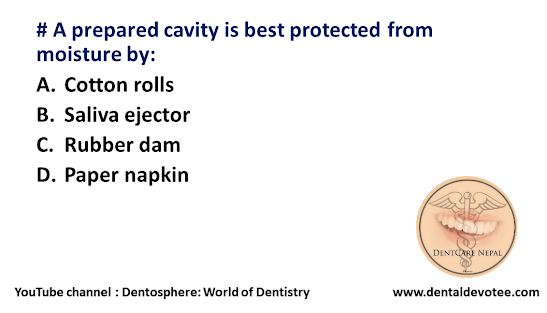# Indirect retainers of partial denture:
A. Engages undercut areas
B. Most effective when close to direct retainer
C. Must be constructed with flexible materials like plastics
D. Should resist rotatory forces about fulcrum
The correct answer is D. Should resist rotatory forces about fulcrum.
Indirect retainers of a partial denture are designed to prevent rotational movement of the denture around the fulcrum line. They help stabilize the denture and distribute occlusal forces more evenly. The correct function of indirect retainers is to resist these rotatory forces about the fulcrum.
Therefore, the correct answer is:
D. Should resist rotatory forces about fulcrum.
When the distal extension denture base is dislodged from its basal seat, it tends to rotate around the fulcrum lines. Theoretically, this movement away from the tissues can be resisted by activation of the direct retainer, the stabilizing components of the clasp assembly, and the rigid components of the partial denture framework, which are located on definite rests on the opposite side of the fulcrum line away from the distal extension base. These components are referred to as indirect retainers. Indirect retainer
components should be placed as far as possible from the distal extension base, which provides the best leverage advantage against dislodgment.






